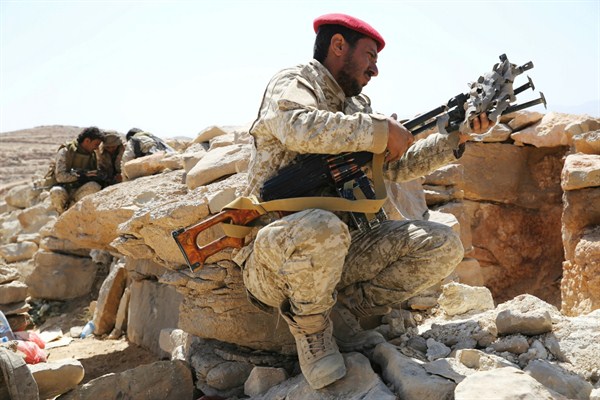Secessionists in southern Yemen have agitated for independence for almost as long as there has been a unified Yemeni state. But since unification in 1990, a common complaint among foreign diplomats and Yemeni government officials was that the secessionists were too diffuse and too poorly organized to credibly demand independence or even political relevance. They were seen as a noisy rabble with no real platform or strategy. Yemen’s civil war has changed that, as a group of secessionists is now moving to build a state within Yemen’s state of chaos.
In late January, clashes in the southern port city of Aden—home to the internationally recognized government that fled the capital, Sanaa, in 2014, after it was taken by Houthi rebels—demonstrated both the secessionists’ confidence in their position on the ground and their impatience for a place at the political table. The clashes also laid bare the fragile position of Yemeni President Abd Rabbu Mansour Hadi.
Hadi, who is currently in exile in Riyadh, gives the Saudis’ role in the Yemen war its political and legal cover. The Saudis launched their campaign in Yemen in March 2015 after a formal request from Hadi for military assistance. The Saudis then pushed for, and got, a U.N. Security Council Resolution, 2216, that demands the Houthis hand Sanaa back to Hadi, along with any arms they may have picked up along the way. The preamble of 2216 specifically names Hadi as Yemen’s legitimate president, something the Saudis and the Hadi government are keen to highlight. In their view this makes Hadi and his appointees the sole legitimate representatives of the Yemeni state until further notice. Any deal that is to be made to end the war will, their argument goes, have to be made with the president, and by extension his patrons in Riyadh.

